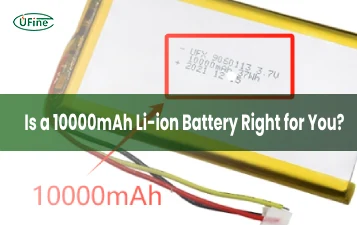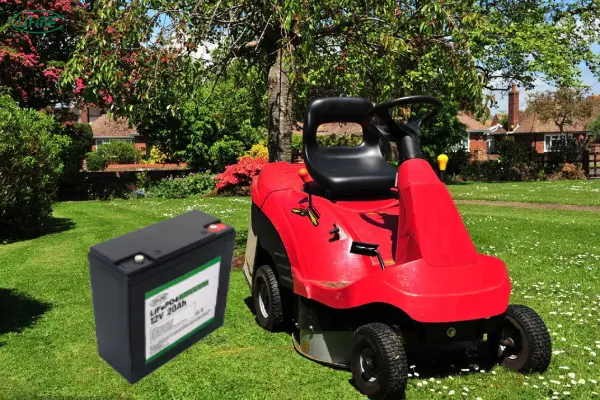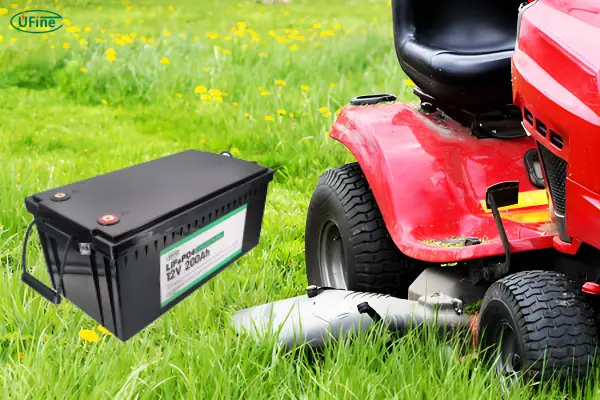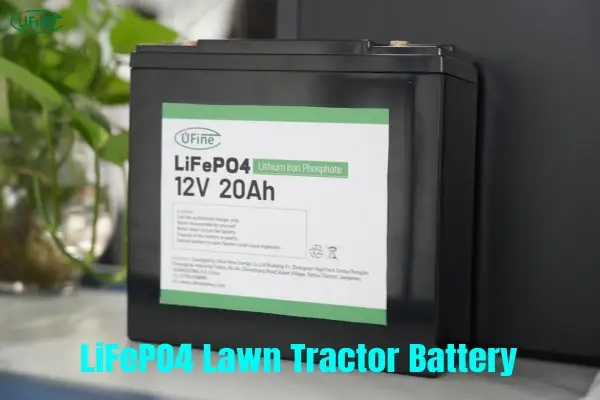A lawn tractor is essential for keeping your yard looking neat and well-manicured. But none of this is possible without a reliable battery powering it. Whether you’re a homeowner or a professional landscaper, having a high-performing lawn tractor battery makes a big difference in efficiency and productivity. In this article, we’ll explore everything you need to know about lawn tractor batteries, including their structure, types, voltage, capacity, and how to properly care for them. With the right knowledge, you’ll be able to choose the best battery for your lawn tractor.
Part 1. Understanding the lawn tractor battery
At its core, a lawn tractor battery serves a critical function—powering the engine and ensuring the smooth operation of the electrical components. This type of battery is designed to handle heavy-duty loads, supporting the tractor through frequent starts and prolonged usage. Inside, the structure is similar to other automotive batteries. It has a combination of lead plates submerged in an electrolyte solution, which produces the electrical current necessary to run the motor and other features, such as headlights.
The working principle of a lawn tractor battery revolves around chemical reactions. When the battery is in use, lead plates react with sulfuric acid, generating electricity to start the engine. As you use the tractor, the battery discharges, which means it loses some of its stored energy. Recharging the battery reverses this process, restoring its power.
Part 2. Voltage and capacity
When it comes to lawn tractor batteries, two critical factors that directly affect performance are voltage and capacity. Voltage refers to the electrical potential, which is typically 12 volts in most modern lawn tractors. Older models may have 6-volt batteries, but 12 volts are now standard because they provide more power and support higher engine outputs.
Capacity, measured in ampere-hours (Ah), indicates how long the battery can supply a specific current. A higher capacity means the battery can run for longer periods before needing a recharge. Most lawn tractor batteries have a capacity of 28-35 Ah, ensuring sufficient power to complete your yard work. Selecting a battery with the right balance of voltage and capacity is essential for avoiding issues like frequent stops or short battery life.
Part 3. What type of battery is used in a lawn tractor?
Lawn tractor batteries come in a variety of types, each with its own advantages and drawbacks. The most common battery chemistries include:
-
Lead-acid batteries: The most traditional and widely used type, lead-acid batteries are reliable and affordable. They use lead plates and an electrolyte solution to generate power.
-
AGM (Absorbent Glass Mat) batteries: AGM batteries are a more advanced form of lead-acid batteries. They are spill-proof and can handle more vibrations, making them ideal for rugged environments. These batteries are also known for their longer lifespan compared to traditional lead-acid batteries.
-
Lithium-ion batteries: While more expensive upfront, lithium-ion batteries are becoming a popular choice due to their lightweight design, high energy efficiency, and long lifespan.
AGM VS Lithium VS Lead-Acid Battery: Comprehensive Comparison
Part 4. Is lithium lawn tractor battery the best battery?
The decision to choose a lithium-ion lawn tractor battery boils down to several key factors. On the positive side, lithium batteries are much lighter than their lead-acid counterparts, which reduces the strain on your lawn tractor. They also recharge more quickly and last longer, offering a lifespan that can reach up to 10 years in some cases.
However, the higher cost of lithium batteries may be a drawback for some users. While they offer superior performance and durability, their initial investment is significantly higher than that of lead-acid batteries. If you’re looking for long-term reliability, especially for heavy-duty or frequent use, investing in a lithium-ion battery may be worth the cost.
Part 5. How long can a lawn tractor battery last?
The lifespan of a lawn tractor battery can vary widely depending on the type, usage, and maintenance. On average, a standard lead-acid battery will last around 3 to 5 years with proper care. AGM batteries can last a bit longer, from 4 to 6 years, while lithium-ion batteries can last up to 10 years or more.
The key to extending the life of your battery is regular maintenance, proper charging, and ensuring that the battery is never fully discharged for extended periods. If you store your tractor for the winter, make sure to fully charge the battery before putting it away.
Part 6. Buying a lawn tractor battery: key parameters
When purchasing a new lawn tractor battery, there are several important factors to consider:
- Voltage: Ensure that the battery matches your lawn tractor’s voltage requirements, typically 12 volts.
- Capacity: Choose a battery with the right amp-hour rating for your needs. A larger yard or longer mowing sessions may require a higher capacity.
- Cold-cranking amps (CCA): This is crucial if you’ll be operating the tractor in colder temperatures. A higher CCA rating means the battery will perform better in cold weather.
Part 7. How to choose a lawn tractor battery charger?
Choosing the right charger for your lawn tractor battery is essential for prolonging its life. A good charger should match the voltage of your battery (usually 12 volts) and have a smart charging feature that prevents overcharging. Smart chargers automatically adjust the charging rate and stop when the battery is full, which helps prevent damage.
Part 8. How to charge a lawn tractor battery?
Charging your lawn tractor battery is a straightforward process but should be done with care to avoid damage or accidents. First, make sure to clean the battery terminals to ensure a good connection. Attach the charger’s positive lead to the positive terminal and the negative lead to the negative terminal. Set the charger to the appropriate voltage and amperage, and allow the battery to charge fully before disconnecting it.
Part 9. Maintenance and care
Proper maintenance is key to ensuring that your lawn tractor battery remains in good working order. Here are a few tips:
- Keep the terminals clean: Corrosion on the terminals can reduce the efficiency of the battery. Clean them regularly with a mixture of baking soda and water.
- Avoid full discharge: Running the battery completely flat can shorten its lifespan. Try to recharge it before it gets too low.
- Store properly in winter: If you won’t be using your lawn tractor during the colder months, remove the battery, fully charge it, and store it in a cool, dry place.
By following these maintenance tips, you can extend the lifespan of your battery and ensure it performs at its best year after year.
By understanding the various types of lawn tractor batteries, how they work, and how to maintain them, you’ll be able to choose the right battery for your needs and keep your lawn tractor running smoothly for years to come.
Related Tags:
More Articles

10000mAh Battery Explained: How Long It Lasts, How It Works
A full guide on 10000mAh li-ion batteries, voltage, usage time, and tips. Discover how a 10000mAh battery works, how long it lasts, and how to choose.
10440 Battery Guide: Size, Voltage, Capacity, Uses & More
Understand 10440 batteries better—size, voltage, safety, and how they compare to AAA. Find the best fit for your high-performance devices.
White Stuff on Battery Terminals: A Step-by-Step Cleaning and Maintenance Guide
White stuff on battery terminals is corrosion. Learn how to clean it safely, prevent damage, and keep your battery running strong with simple steps.
Understanding How Glass Mat Batteries Work: Technology, Benefits, and Limitations
Glass mat batteries power cars, RVs, and solar systems. Learn how they work, their benefits, and what to consider before choosing one.
A Buyer’s Guide for AA Size Lithium Battery
Discover the power of AA size lithium batteries—types, voltage, capacity, and more! Learn how to choose the best one for your needs. Read now!






